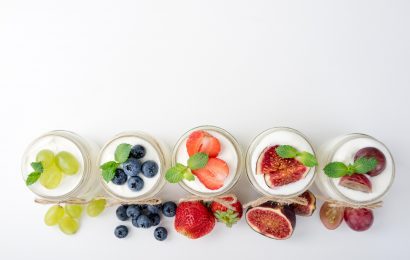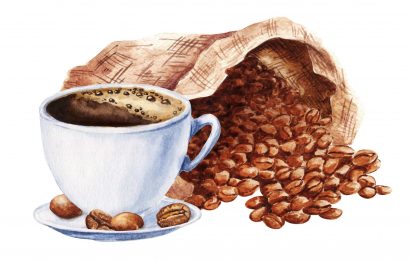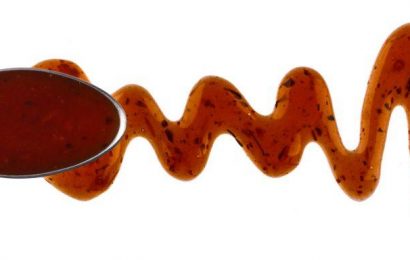Diabetes — both Type 1 and Type 2 — is a disorder of how the body uses glucose, the main form of sugar used as fuel. While many people without diabetes don’t know a lot about the disease processes involved, they probably know it has something to do with sugar.
But the relationship between blood glucose and dietary sugar intake is anything but direct, both when it comes to developing diabetes and among people who already have it. Some people consume high levels of sugar and never develop diabetes, while others follow a low-sugar diet and still develop it.
This doesn’t mean, though, that there’s no relationship between dietary sugar and diabetes or blood glucose. In fact, sugar consumption seems to be associated with a number of different health outcomes, including whether or not someone develops diabetes.
If you’re confused about what this means for your health, you’re not alone. The research on dietary sugar and diabetes includes many different study designs, and some studies are considered more important or reliable than others by groups that make dietary recommendations for both the general population and people with diabetes.
Here’s what some studies and leading organizations say about sugar and diabetes.
Any source of excess calories (including sugar) can contribute to Type 2 diabetes
Being overweight or obese is a major risk factor for Type 2 diabetes, although it’s only one factor. Many people with Type 2 diabetes are thin, and many people with excess body weight never develop diabetes.
According to the American Diabetes Association, other major risk factors for Type 2 diabetes include physical activity, family history, ethnicity, and age.
The group emphasizes that sugar is a source of excess calories in many people, so it’s good to look at your sugar intake when evaluating your diet and potential causes of weight gain.
Sugar isn’t the only form of carbs that can raise your blood glucose
Once you have diabetes of any type, it’s important to keep track of nutrients in your diet that can affect your blood glucose levels. This includes different forms of carbohydrate, like sugars, starches, and fiber.
Starches and sugars may raise blood glucose in people with diabetes to varying degrees, while fiber may slow the rise in blood glucose that comes with consumption of other carbohydrates. It’s important to figure out how your body responds to various nutrients and foods.
The American Diabetes Association emphasizes that the total amount of carbohydrate in your diet should be based on many factors, and that your health-care provider can help figure this out. Particularly when it comes to starches — from foods like bread, cereal, rice, pasta, potatoes, peas, and corn — it’s important to control portion sizes.
Sweets and desserts, the group notes, can be part of a healthy meal plan but should be reserved for special occasions and eaten in very small portions.
Overall sugar consumption is linked to diabetes in populations
It’s difficult to design a study that tests whether consuming more sugar increases a person’s risk of developing diabetes. That’s because sugar — both natural and added — is present in many different foods, and most people’s diets can’t be meaningfully tracked over the amount of time it takes to see differences in how many people develop diabetes.
It’s a lot easier to compare different populations of people, since per-person consumption of sugar (or anything else) within a country can be calculated based on the total amount that’s present in all foods sold. This amount can then be compared with the number of people who develop diabetes over a set period of time.
One study, published in February 2013 in the journal PLOS One, found that across 175 different countries, every 150 calories per day of sugar consumption — about as much as a can of soda contains — was associated with an additional 1.1 percent in the rate of Type 2 diabetes. This was true after controlling for total calories, overweight and obesity, age, income, and urban versus rural living, among other factors.
Out of all dietary components the study looked at, sugar was the only one linked to diabetes rates. The other components were fiber, meat, fruits, oils, and grains.
Another study, published in February 2014 the journal BMC Health, looked at 165 countries and also found an overall link between sugar consumption and diabetes of all types. This connection was strongest in Asia, and it wasn’t present at all in some countries. When other potential factors in developing diabetes were controlled for, the connection to sugar remained significant only in Asia and South America.
Drinking sugar-sweetened beverages is clearly associated with developing Type 2 diabetes
As noted in an article published in April 2014 in the journal Diabetes Care, per-person consumption of soft drinks in the United States has increased by a factor of five since 1950. Furthermore, an overview of the studies on the subjects suggests that drinking sugar-sweetened beverages is associated with an increased risk of Type 2 diabetes and cardiovascular disease.
The American Diabetes Association considers this evidence strong enough to state that drinking sugar-sweetened beverages is a risk factor for Type 2 diabetes, and the American Heart Association recommends limiting added sugars in your diet to about 100 calories for women and 150 calories for men each day.
”Added sugars” means all types of concentrated sugar-based sweeteners, including cane sugar (white or brown), high-fructose corn syrup, honey, molasses, fruit juice concentrates, maple syrup, and other syrups (such as agave, corn, rice, or sorghum).
Artificially sweetened beverages might not be a much better choice
Many people, with or without diabetes, turn to soft drinks made with zero-calorie sweeteners as an alternative to sugar-sweetened beverages. While these beverages tend to be essentially calorie-free, they may still raise your risk of developing diabetes.
In an article published in June 2014 in the British Journal of Nutrition, researchers found that based on the combined results of multiple studies, every 330 milliliters (about 11 fluid ounces, or almost a can of soda) of sugar-sweetened soft drinks participants drank each day was associated with a 20 percent higher risk of developing Type 2 diabetes. For the same quantity of artificially sweetened soft drinks, the risk increase was 13 percent.
Fructose might be worse for you in the long run than glucose
In an article published in March 2015 in the journal Mayo Clinic Proceedings, the authors examined the research on consuming added fructose — either in high-fructose sweeteners or in sweeteners containing a mix of fructose and glucose (which includes most forms of sugar).
They write that fructose, rather than glucose, in sweeteners may pose the greatest risk for developing Type 2 diabetes and related metabolic and cardiovascular problems. Fructose that occurs naturally in whole fruits, on the other hand, doesn’t seem to cause any increase in these risks.
The authors conclude that there’s no need for added fructose or other sweeteners in your diet, and that limiting your intake of added sugars to 5 percent of your total calories — as recommended conditionally by the World Health Organization — could improve glucose tolerance and reduce the overall rate and burden of diabetes.
Sugar consumption may increase some people’s Type 1 diabetes risk
Addressing the relationship between sugar intake and diabetes risk, the American Diabetes Association states that Type 1 diabetes is “caused by genetics and unknown factors that trigger the onset of the disease.”
While the research isn’t definitive, there’s evidence to suggest that one of these factors may be sugar consumption.
In a study published in September 2015 in the journal Diabetologia, researchers looked at data from a study called Diabetes Autoimmunity Study in the Young (DAISY), which has tracked children at increased genetic risk for Type 1 diabetes to see if they actually develop it as they grow older.
Some participants in the study have developed what’s known as islet autoimmunity, which means their blood contains antibodies (proteins involved in your immune system’s response) to insulin or other substances released in the pancreatic islets. People with islet autoimmunity often progress to Type 1 diabetes.
Participants in the study submitted food questionnaires that tracked their intake of fructose, sucrose, total sugars, sugar-sweetened beverages, beverages containing zero-calorie sweeteners, and fruit juices.
Among children in the study who had developed islet autoimmunity (142 out of 1,893 participants), intake of total sugars was significantly associated with progression to Type 1 diabetes. Consuming sugar-sweetened beverages was also associated with this progression in children with a certain genetic risk factor (known as HLA genotype).
But no sugar-related factors were found to increase the risk of developing islet autoimmunity in the first place. This means that according to the study, any Type 1 diabetes risk associated with sugar intake applies only to a small high-risk subset of children who are already genetically predisposed to developing the condition.
Want to learn more about diabetes and nutrition? Read “Top Tips for Healthier Eating,” “Counting Carbohydrates Like a Pro,” and “Carbohydrate Restriction: An Option for Diabetes Management.”





